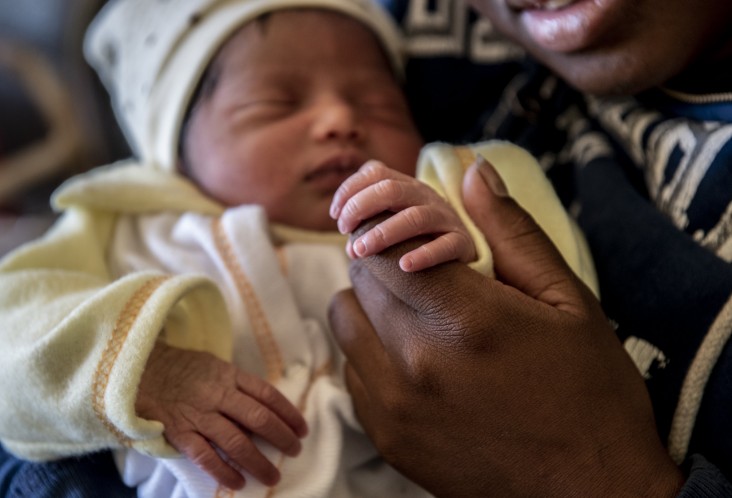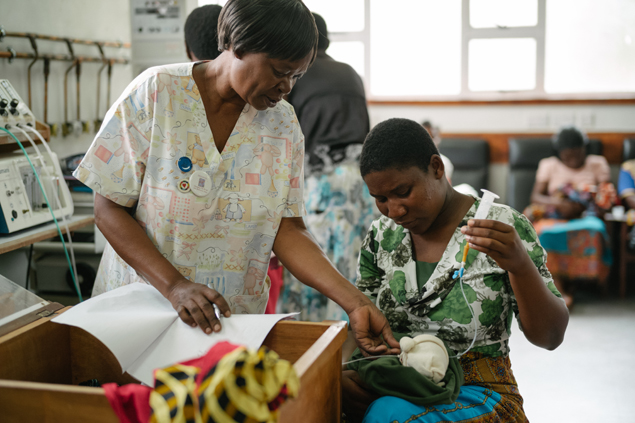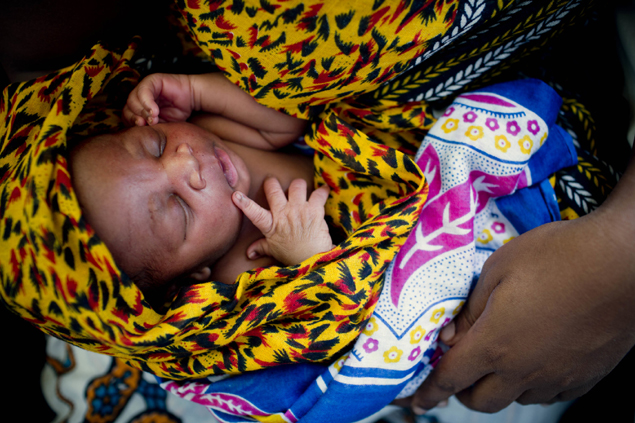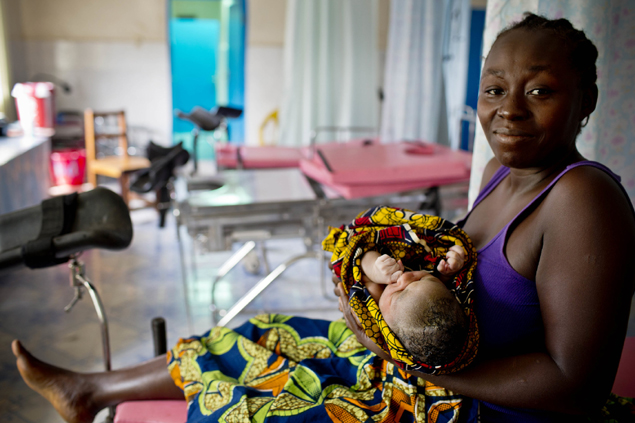- What We Do
- Agriculture and Food Security
- Democracy, Human Rights and Governance
- Economic Growth and Trade
- Education
- Environment and Global Climate Change
- Gender Equality and Women's Empowerment
- Global Health
- Humanitarian Assistance
- Transformation at USAID
- Water and Sanitation
- Working in Crises and Conflict
- U.S. Global Development Lab
Speeches Shim

Approximately 7,000 newborns die every day worldwide, with one-third dying on their first day and close to three-quarters in the first week after birth.1
Each year, 2.5 million babies die during their first month of life globally. This accounts for nearly half of all deaths among children under five.1 Despite global reductions in under-five mortality in the last decade, a child born in sub-Saharan Africa is 10 times more likely to die in the first month than a child born in a high-income country.1 However, when appropriate interventions are delivered during labor and childbirth, up to 51 percent of newborn deaths can be avoided.2
Since 2012, USAID has supported 9.3 million newborns with care after delivery across 25 countries.
The time surrounding birth is a crucial period for infants. USAID works to increase access to quality care for pregnant mothers and newborns during childbirth and to scale up cost-effective interventions like kangaroo mother care to support small and sick newborns. USAID also works to increase access to quality antenatal and postpartum care for pregnant mothers and newborns to support the health of both mom and baby through pregnancy and into the first years of life. To ensure interventions have the greatest possible impact and reach, USAID works with private and public partners to remove barriers for families to access quality maternal and newborn care, both of which are critical for saving newborn lives.
Resources
- Every Newborn Action Plan [PDF, 8.2MB]
- USAID Acting on the Call: Preventing Child and Maternal Deaths
- Photo Gallery: Newborn Health
- WHO’s Survive and Thrive: Transforming care for every small and sick newborn [PDF, 7.2MB]
USAID's Impact

Through a partnership with Rice University, USAID supported the scale up of an innovative, cost-saving bubble continuous positive airway pressure (bCPAP) machine to deliver pressurized oxygen therapy to premature babies all over Malawi.
With the introduction of the bCPAP machine at the Queen Elizabeth Hospital in place of standard oxygen treatment, the survival rates for newborns using the bCPAP improved 27 percent over a nine month period. Watch this video to see Malawian nurse, Florence Mwenifumbo in action, using the bCPAP machine to save lives.

Through supporting local health providers, in 2018 alone, USAID helped 68,000 newborns in Haiti receive postnatal checks within 72 hours of delivery.
Photo Credit: Karen Kasmauski/MCSP and Jhpiego

In India, with USAID support, stillborn and neonatal mortality decreased by 20 percent in just one year within target districts.
USAID demonstrated a model to improve the quality of care around birth in target districts, which led to this reduction in stillborn and neonatal mortality. The Government of India is now scaling up the quality of care model nationwide with its own domestic resources. Photo credit: USAID

In Tanzania, USAID contributed to the reduction of stillbirths and newborn deaths by 33 percent across facilities in four regions in 2018 by focusing on improving quality of care.
Photo Credit: Kate Holt/MCHIP

In 2018, 75 percent of babies born in Liberia received antiseptic gel on their umbilical cords after birth to prevent infection.
Through the development of a national scale-up plan for chlorhexidine in collaboration with the government of Liberia, 75% of infants born in public and private facilities had the life-saving gel applied to their umbilical cords after birth. Photo Credit: Kate Holt for Jhpiego/MCSP
1 https://www.who.int/news-room/fact-sheets/detail/newborns-reducing-mortality
2 https://www.who.int/pmnch/media/publications/aonsectionII.pdf [PDF, 212K]

Comment
Make a general inquiry or suggest an improvement.